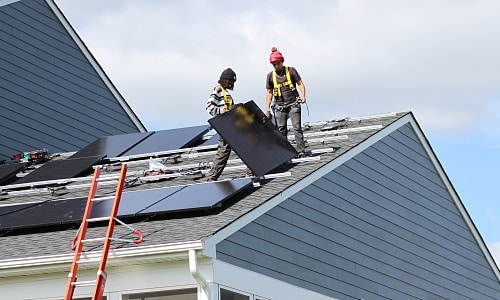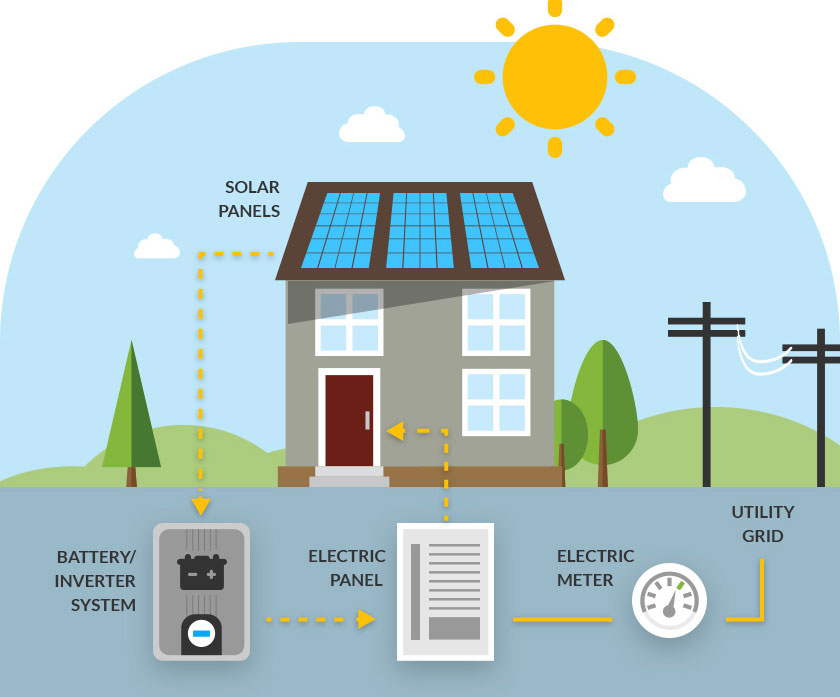Things about Solar Companies In Virginia
Things about Solar Companies In Virginia
Blog Article
Virginia Solar Panel Company: Lumina Solar Focuses On Offering Advanced Photovoltaic Solutions For Homes And Organizations
History and Founding
Have you ever questioned how a solar panel business springs from a mere spark of motivation into a powerhouse of renewable resource? It typically starts with a vision-- one sustained by a blend of development, determination, and a pinch of serendipity. The journey of numerous solar business mirrors the development of the technology itself: from large, ineffective panels to streamlined, high-efficiency marvels utilizing the sun's bounty.
The Early Days
In the late 20th century, when solar energy was still a niche idea, pioneers planted seeds for what would become a global motion. Picture a little workshop filled with curious engineers, tirelessly try out solar batteries. Their passion was palpable, often driven by a desire to fight climate change and decrease dependence on fossil fuels.
One such anecdote is about a creator who, inspired by an outdoor camping trip, realized that even in remote locations, the sun could power essential devices. This basic observation stimulated a business's objective to democratize access to clean energy.
Establishing Principles

- Innovation: Continuously pushing the borders of solar technology to improve performance and toughness.
- Sustainability: Dedicating to environmentally friendly manufacturing and lowering carbon footprints.
- Ease of access: Making renewable resource options cost effective and useful for everyday users.
Turning points in Growth
| Year | Secret Occasion |
|---|---|
| 1985 | Business founded in a small garage, concentrating on research and development. |
| 1995 | Industrial solar panel item introduced, acquiring regional attention. |
| 2005 | Broadened to global markets, embracing international renewable resource objectives. |
| 2015 | Introduced cutting-edge photovoltaic panel technology with enhanced energy conversion. |
Isn't it interesting how these incremental actions, frequently neglected, form the energy landscape today? The solar panel business story is not almost innovation; it has to do with a ruthless quest for a brighter, cleaner future.

Developments in Photovoltaic Panel Technologies
Ever seen how some photovoltaic panels gleam brighter and last longer? It's not magic; it's the science of photovoltaic performance. Modern photovoltaic panel business invest heavily in technologies like bifacial cells, which record sunshine from both sides, enhancing energy harvest without expanding roofing space. Have you ever wondered why some panels carry out much better on cloudy days? That's due to advances in thin-film solar innovation, which grows under diffused light conditions.
Product Variations Customized to Special Requirements
One size never ever fits all. Photovoltaic panel companies now offer:
- Monocrystalline panels for optimum efficiency and smooth aesthetic appeals, perfect for space-constrained roofs.
- Polycrystalline panels, which use a cost-efficient option without compromising too much output.
- Building-integrated photovoltaics (BIPV), combining solar tech perfectly into architectural components like windows and facades.
Choosing the right item isn't practically upfront cost; it has to do with matching your environment, energy goals, and long-lasting savings. For example, homes shaded by trees require panels that excel in low-light scenarios, something numerous ignore until energy costs climb unexpectedly.
Technical Tips for Optimum Choice
- Evaluate the temperature coefficient-- lower worths indicate panels lose less efficiency on hot days.
- Search for panels with improved anti-reflective coatings to take full advantage of light absorption.
- Consider the panel's service warranty not just for problems, however for ensured power output over years.
- Don't ignore the value of the inverter innovation coupled with the panels; it can make or break your system's efficiency.
Beyond Panels: Emerging Patterns
Think of photovoltaic panels that adjust their angle immediately to go after the sun-- tracking systems are becoming more available, increasing yield significantly. Or solar tiles that blend undetectably into your roofline, transforming your home into a silent, self-dependent power generator. These developments are reshaping what a solar panel business offers-- not simply products, however integrated energy solutions.
Market Presence and Global Operations
Ever wonder why some photovoltaic panel companies seem to grow up in every corner of the globe while others barely make a ripple? The distinction lies not just in innovation but in mastering the art of browsing diverse markets. Broadening worldwide resembles planting seeds in different environments-- you need to comprehend each environment's special conditions to grow.
Take, for circumstances, the detailed dance of logistics and supply chain management. Delivering panels midway throughout the world isn't practically range; it has to do with timing, customs, tariffs, and adapting to local need changes. A business with robust worldwide operations expects these variables, guaranteeing panels show up on schedule without pumping up costs. This foresight is no little task and typically separates market leaders from followers.
Secret Methods for Expanding Market Existence
- Localized production: Establishing production centers near target markets decreases shipping delays and import intricacies.
- Strategic collaborations: Working together with regional companies speeds up market penetration and builds trust.
- Adaptive product design: Customizing solar panel tech to weather, sun strength, and facilities subtleties boosts performance and approval.
What about the human element? Solar panel companies operating internationally should fix up cultural differences and regulatory subtleties without forgeting their core mission. What works in a sun-drenched desert may falter in a humid seaside area. In some cases, the most innovative service is simply listening-- taking in local insights to refine innovation and method.
Professionals often advise a phased rollout instead of a shotgun growth. Why run the risk of overextension when determined growth constructs sustainable momentum? Scaling sensibly indicates balancing aspiration with operational resilience - Solar Panel Company. After all, in the race for sustainable energy dominance, patience can be as valuable as speed
Environmental Effect and Sustainability Practices
When photovoltaic panels first emerged, numerous assumed they carried read more no ecological luggage. Nevertheless, the truth is more nuanced. The production of photovoltaic cells involves uncommon earth metals and energy-intensive processes, which can leave a substantial carbon footprint before the panels even reach roofs. Yet, the true environmental expense depends heavily on the sustainability practices employed by the photovoltaic panel company throughout the lifecycle of their products.
How often do we stop briefly to consider what takes place to photovoltaic panels at the end of their helpful life? Unlike batteries or electronics, photovoltaic panels can last 25-30 years, however disposal and recycling paths remain underdeveloped in many areas. A business committed to minimizing environmental harm will have a robust strategy for recycling photovoltaic materials, restoring important silicon, glass, and metals to avoid land fill build-up.
Secret Sustainability Methods
- Making use of low-impact manufacturing methods that lessen water and energy intake.
- Executing closed-loop systems to recycle production waste back into new panels.
- Taking part in transparent supply chain audits to ensure ethical sourcing of raw materials.
- Creating panels for simpler disassembly to aid future recycling efforts.
It deserves keeping in mind that some solar companies have pioneered innovative methods, such as incorporating biodegradable parts or utilizing less toxic chemicals during fabrication. This not only lowers environmental pressure but likewise sets a precedent for the market. The question remains: can the solar industry genuinely pivot towards a circular economy design without sacrificing efficiency or price?
Specialist Tips for Assessing Sustainability
- Inquire about the business's commitment to carbon-neutral manufacturing and whether they balance out emissions.
- Investigate if they partner with certified recycling facilities committed to photovoltaic panel waste.
- Look for openness reports detailing environmental effects and sustainability objectives.
- Think about the durability and warranty of panels as an indirect step of resource performance.
In the end, choosing solar power must imply more than simply slashing electrical power costs; it's about supporting a future where energy is harvested properly and waste is attentively managed. Solar panel companies that embrace this approach not only brighten homes however also cast a brighter light on sustainable development.
Report this page